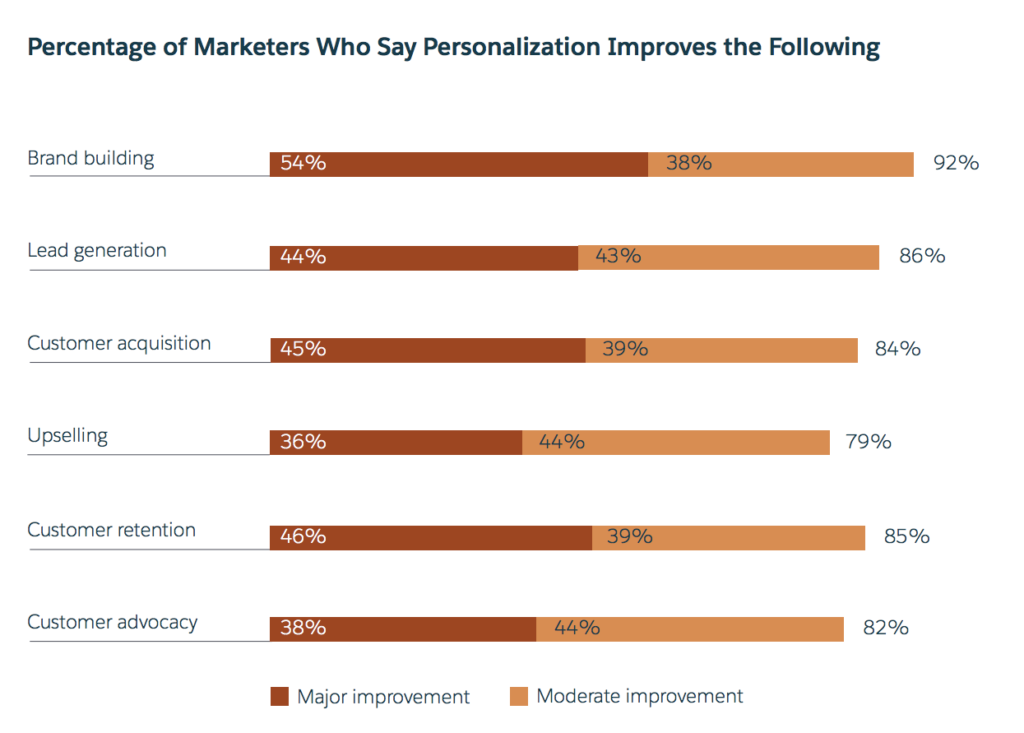Personalization in Digital Marketing Why It Matters sets the stage for a deep dive into how tailored marketing strategies are reshaping the landscape of consumer engagement. In today’s digital age, where consumers are bombarded with information, personalization emerges as a key strategy that enhances user experience and builds lasting connections. This approach not only boosts conversion rates but also fosters brand loyalty, making it an essential aspect of modern marketing.
From understanding consumer behavior to leveraging data analytics, the role of personalization extends across various platforms, transforming the way brands interact with their audience. It involves a blend of innovative technologies and human insights to create meaningful experiences that resonate with individual preferences and needs.
In the ever-evolving landscape of technology, we find ourselves on a journey that continuously reshapes our daily lives and interactions. The emergence of the digital age has brought about unprecedented changes, influencing everything from how we communicate to how we conduct business. This article delves into the multifaceted impacts of technology on society, exploring both its benefits and challenges while providing insights into the future.First and foremost, let’s consider the realm of communication.
The advent of smartphones and social media platforms has revolutionized the way we connect with others. No longer are we restricted by geographical boundaries; a message sent from one corner of the globe can be received instantaneously in another. This ease of communication fosters a sense of global community, allowing individuals to share ideas, cultures, and experiences like never before.
However, it also brings about challenges. The rise of cyberbullying, misinformation, and the erosion of privacy are pressing issues that we must address as we navigate this digital landscape.Moving beyond communication, technology has had a profound impact on education. Online learning platforms have democratized access to knowledge, allowing students from various backgrounds to pursue education remotely. This is particularly significant for individuals in underprivileged areas or those with disabilities who may have previously faced barriers in traditional educational settings.
However, this shift also calls for a critical examination of the digital divide. Not all students have equal access to the necessary technology and internet connectivity, which can exacerbate existing inequalities.In the realm of business, technology has led to remarkable advancements. The rise of e-commerce has transformed how consumers shop, providing convenience and a plethora of options at their fingertips.
Businesses are now able to reach global markets, enhancing competition and innovation. Additionally, the implementation of artificial intelligence and automation is streamlining operations, increasing efficiency, and reducing costs. Yet, this technological integration raises concerns about job displacement and the need for reskilling the workforce. Companies must navigate this landscape carefully, balancing the benefits of technology with the ethical implications of their choices.Healthcare is another area where technology has made significant strides.
Telemedicine has emerged as a vital tool, especially in light of recent global health crises. Patients can now consult with healthcare professionals from the comfort of their homes, improving access to medical care and reducing the burden on healthcare facilities. Wearable technology and health apps empower individuals to monitor their health proactively, leading to better outcomes. Nonetheless, with these advancements come ethical considerations regarding data privacy and security.
As we collect more health data, ensuring that it is protected and used responsibly becomes paramount.As we look to the future, it is essential to consider the role of technology in shaping our societal values. The rise of artificial intelligence and machine learning presents both opportunities and ethical dilemmas. While these technologies can enhance our lives in many ways, they also raise questions about accountability and bias.
How do we ensure that AI systems are designed with fairness in mind? How can we prevent the perpetuation of existing biases through algorithms? These are questions that technologists, policymakers, and society at large must grapple with as we move forward.Moreover, sustainability is becoming a pressing concern in our technological pursuits. The environmental impact of tech production and energy consumption cannot be overlooked.
As we strive for innovation, we must also prioritize creating sustainable practices that minimize harm to our planet. This includes investing in renewable energy sources and developing eco-friendly products. Consumers are increasingly demanding transparency and responsibility from companies, making sustainability a key factor in business strategies.In conclusion, technology is a double-edged sword that brings both incredible opportunities and significant challenges.
As we embrace the benefits of technological advancements, we must remain vigilant about the potential pitfalls. By fostering an open dialogue about the ethical implications and focusing on equitable access, we can work towards a future where technology serves as a tool for good. It’s crucial to remember that technology should enhance our humanity rather than diminish it. As we navigate this ever-changing landscape, let us strive to harness technology’s power responsibly and thoughtfully, ensuring it contributes positively to society as a whole.
FAQ Summary: Personalization In Digital Marketing Why It Matters
What is personalization in digital marketing?
Personalization in digital marketing refers to tailoring marketing messages and experiences to individual consumers based on their preferences, behaviors, and previous interactions.
How does personalization improve customer experience?
By delivering relevant content and offers that align with a consumer’s interests, personalization enhances engagement, making the customer feel valued and understood.
What tools can be used for personalization in marketing?
Various tools such as customer relationship management (CRM) systems, data analytics platforms, and marketing automation software can facilitate personalized marketing efforts.
Is personalization in digital marketing cost-effective?

Yes, personalization can lead to higher conversion rates and customer retention, ultimately lowering customer acquisition costs and increasing return on investment.
What are the risks of personalization in digital marketing?
Risks include potential privacy concerns and data breaches, as well as the possibility of alienating customers if personalization feels intrusive or overly targeted.



